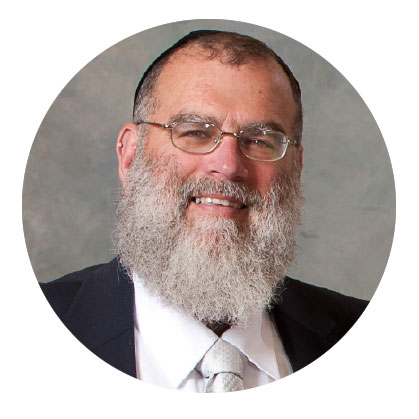Chinuch On You


H
ow excited would you be if I asked you to do 100 push-ups?
I once heard that Rav Yaakov Kamenetsky ztz”l called schools “Sedom beds.” He was referring to the famous midrash that says that the people of Sedom mistreated visitors by “stretching” short guests to fit long beds and cutting tall people down to size to fit short beds. In a way schools are like that: one size fits all. The problem is that people aren’t all the same size. One child is gifted academically another is not. Some are physically coordinated some are not. One classroom one teacher — and many many types of students. A school simply can’t give each child a tailor-made education.
But our homes are not classrooms. A home is where each child should be given a chinuch al pi darko according to his needs. Most of the year we entrust them to our shelichim our proxies — the school. But come the Yamim Tovim our children are home with us. Unfortunately this holy and happy time often comes with an uninvited guest: flashpoints. A flashpoint is a time of tension anger and emotional eruption (we used to call it screaming) that occurs repeatedly over the same issues.
A common flashpoint of this time of the year is davening since we spend so much time in shul and the demands and pressures on our children to do us proud and daven well are greater than usual.
Here are some true-life scenarios that you may have seen:
The father standing outside wrapped in a tallis and kittel screaming in frustration “Come in right now!”
The mother who knocks loudly on her son’s door for the third time trying to wake him up for minyan.
The look on a father’s face when his teenage son appears in shul dressed in defiance of the unofficial shul “dress code.”
The mother whispering to her daughter “Why can’t you sit still and daven like all the other girls?”
Chinuch means doing something for our children right now so that they will act properly as adults. Forcing your child to comply now may win you the battle but you risk losing the future. In these scenarios the parents are risking turning their children off from davening.
We want our kids to have good memories of shul. When we find ourselves in a cycle of negative interaction with our kids we have to take steps to eliminate the flashpoint. Keep in mind the following pointers:
Don’t compare kids. Accept your child’s limitations and act accordingly.
If a child is ADHD or just very active sitting in shul for hours at a time is a great strain. Discuss with him or decide in consultation with his rebbi or teacher how much he can take at a time. Prioritize: Select which tefillos the child should be in shul for and before Yom Tov get his input and agreement to a plan.
Lengthy davening is difficult for many children and teens.
Many children and teens particularly those with reading issues or learning disabilities find it challenging to follow the chazzan for long periods of time. How excited would you be if I asked you to do 100 push-ups? Wouldn’t that be a great way to spend an hour? You may like davening with a slow-paced yeshivah minyan but you might want to consider finding a faster minyan for your child’s sake. What if your other children can handle the yeshivah minyan? Go with your less-patient child to the minyan that ends earlier and let a neighbor or close friend watch your kids in yeshivah. Same goes for the inappropriately dressed child — find a minyan with a less severe dress code.
Even kids who can follow the tefillos may be bored saying words they don’t understand. Before Yom Tov explain some of the tefillos to your children and make notes in the machzor together with them.
During the Yamim Noraim even off-the-derech kids want to daven.
Communities with sizeable kids-at-risk populations should organize a minyan that is run by adults who know how to work with them — a nonjudgmental minyan that will cover the tefillos quickly. For instance singing the piyutim together rather than with responsive reading cuts down on time and prevents minds from wandering. Fast-paced tefillah without chazanus followed by a really good kiddush is the kind of davening that helps keep lost kids connected.
Remember: Your teen davening with a minyan is not your problem.
Okay maybe it is your problem because it hurts you to see it but nagging teens to daven with a minyan simply does not work. If your disappointment in his behavior is not enough of a deterrent yelling won’t help.
Let’s do our hishtadlus to ensure a wonderful and simchah-filled new year for us and for our children.
Rabbi Zakon is director of Yeshiva Teachers Institute a chinuch training program for kollel men and of Chinuch Habonim Seminars Yerushalayim. He has been in chinuch for decades.
Oops! We could not locate your form.













